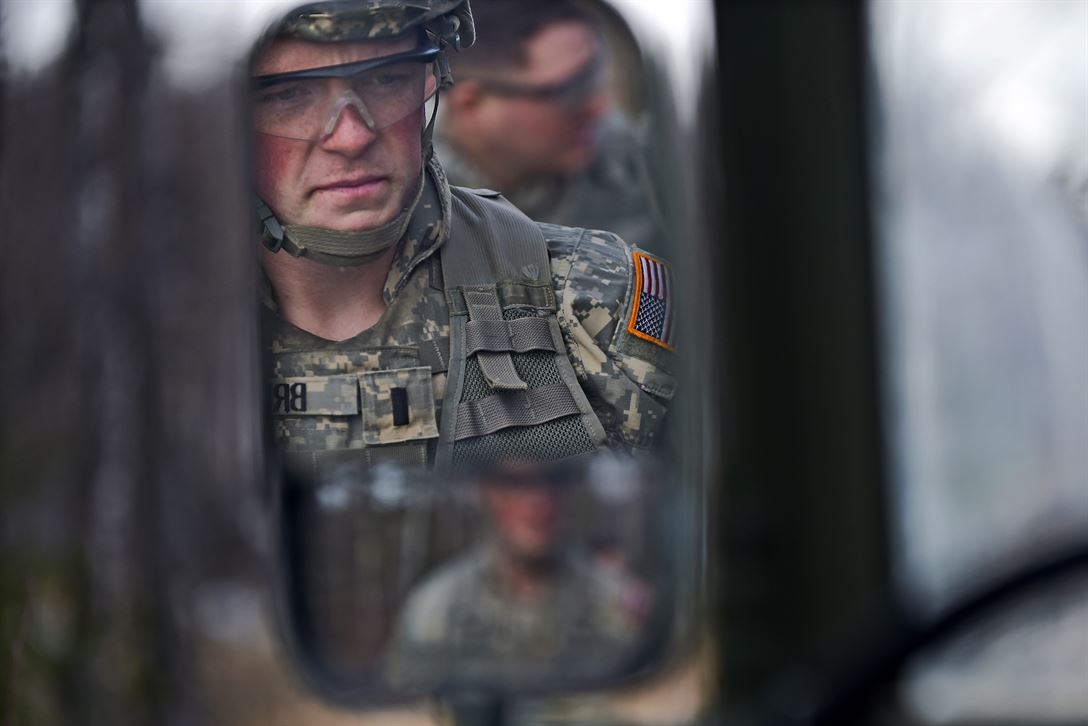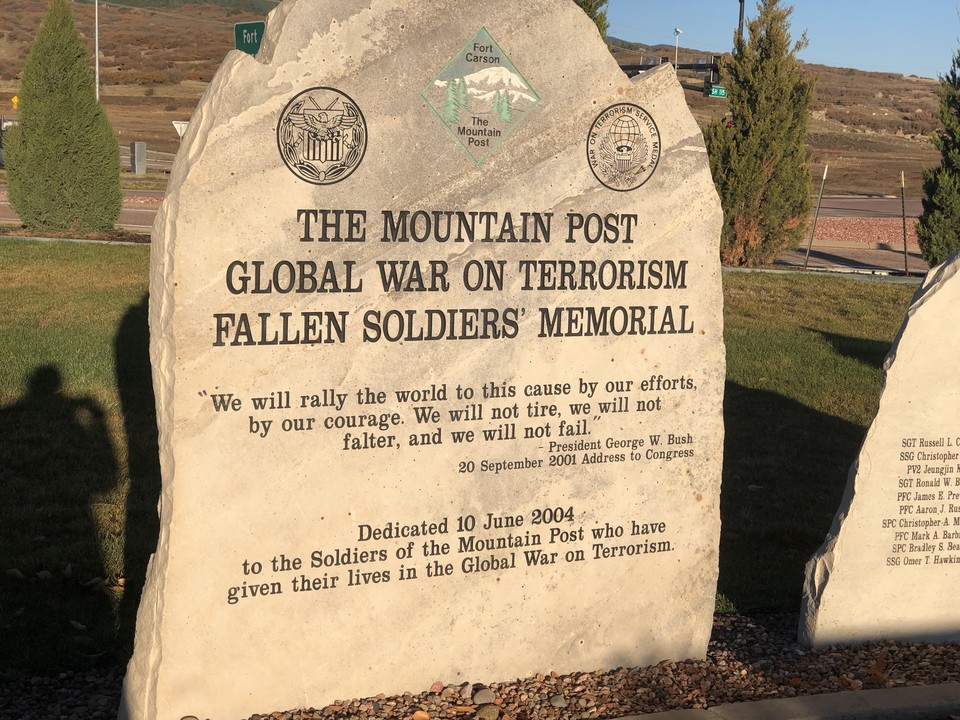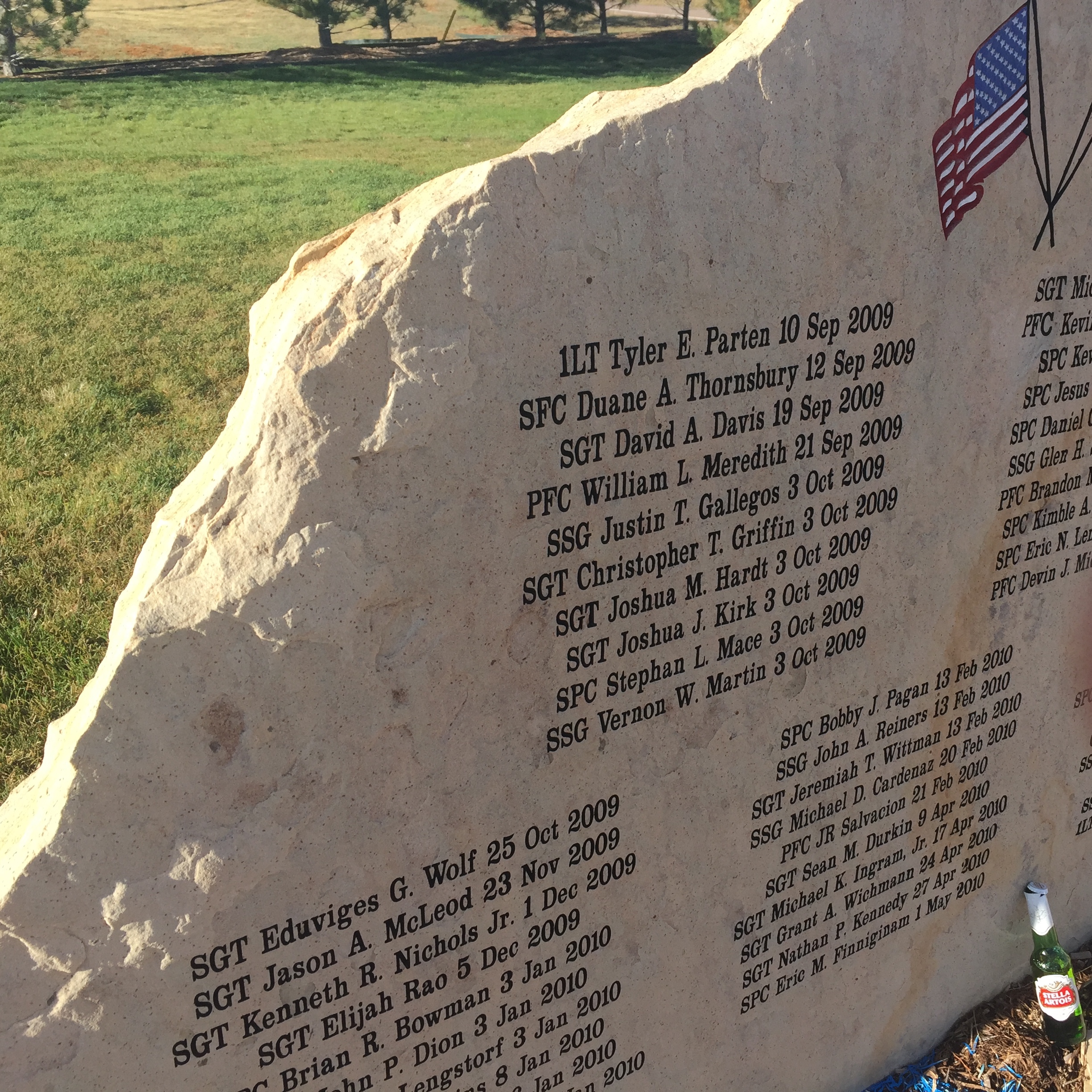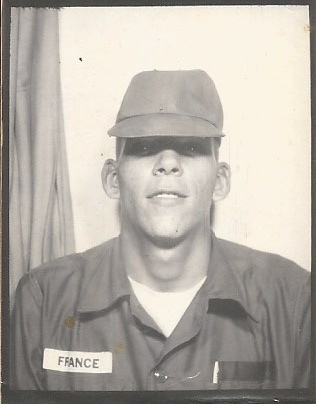
U.S. Army 1st Lt. Jonathan Briggs is seen in the mirror of his vehicle before a heavy weapons live-fire exercise on Joint Base Elmendorf-Richardson, Alaska, April 24, 2015. DoD Photo
…and who you are is not who you’re going to be. When a veteran looks at themselves in a mirror, it’s a toss up about who they’re going to see: who they were, the military service member? Who they are, just them as they are right now? Or them in the future, a competent professional? When I was in my primary leadership development course back in the ’90s, one of the instructors told us a key principle of leadership: “We are three people. Who we think we are, who others see us as, and how we really are.” For veterans in post-military life, these three perceptions can be wildly different.
We all have different personas, different roles that we play in our lives. If you sit for a minute and think of all the roles you play, you can probably easily come up with ten or more. Veteran, if you served; spouse, parent, cousin, child, grandchild. For me, therapist; writer; podcaster. Friend, enemy (although hopefully not too much of that). The challenge for many veterans I work with is that they want to be who they were, rather than who they are. These different roles don’t agree with each other; I am veteran, but I want to be service member. The farther away each of these personas are from each other, the more challenging life can be.
When I talk to clients about this, I often explore these three personas, and I’ve found that we generally carry three separate ones: the service member/veteran, the person we present to the world, and who we really are. To illustrate this concept, I’ll take a cue from a podcast recently discovered about the psychology of Batman, The Arkham Sessions. One of the co-hosts, Dr. Andrea Letamendi, describes the three personas in this way: there is Batman, the vigilante; Bruce Wayne, the playboy millionaire that is presented to the world; and there is Bruce, the real guy underneath both.
For veterans, I see this in a similar way. There is Sergeant First Class France, the military me, morphed into my identity as a Veteran. Then there is Mr. France, the post-military professional, who does all the meetings and networking and shaking hands and business cards and stuff like that. Then there’s Duane, the guy underneath both of them. The problem arises when Duane identifies so heavily with the Veteran persona and is unable to transition to the professional persona.
Sometimes, the Veteran Wants To Be Who They Were
This is when the veteran longs for the glory days of the past. They wish they never got out of the military. They want to be back where they were comfortable, where things made sense. If my identity is wrapped up in being a high school football player, then I never move on from it. If my identity is wrapped up in the service member I was, then I’m stuck in that persona. I relive my glory days, living in the past, becoming more disillusioned as time goes on, more frustrated because who I was is not who I am.
Sometimes, the Veteran Doesn’t Want to be Who They Are
This can compound the problem of wanting to be who they were. Now, they’re stuck. They’re racked with guilt about the things that they did in combat, if they deployed, or angry about how they’re treated upon their return. The real them behind the veteran persona, the one alone behind closed doors, is depressed, bitter, afraid, lonely. Unsatisfied with their current life, feeling unloved and unproductive. This can increase the pull of the military persona; we relive the days where we were not depressed, afraid, and unproductive. It makes us long even more for the time when we mattered, because we don’t feel like we matter now.
Sometimes, the Veteran Doesn’t Know How to Become Who They’re Going to Be
So if Sergeant France is who I really want to be, and Duane is someone I don’t like, it’s going to be hard to develop into Mr. France. The professional persona, the post-military persona, becomes unobtainable…we just don’t know how to get there from here. We don’t know that that person looks like, and we don’t want to know…because we want to be who we were. We want to be back in the service, we want to be comfortable. In some ways, we want to be stuck, even though it feels like crap.
The challenge is, some veterans don’t realize that they have so much more to give to the world than their former military service. Many believe that their commitment to serve did not end when they took off the uniform, but their ability to do so did. As long as we believe that to be true, it is true; if we think that the best days of our lives are behind us, when we have decades of life in front of us, then hope is not on the horizon.
Balancing These Personas is Key to a Satisfied Post-Military Life
The more we want something, but can’t have it, the more upset we become. A kid wants a cookie, can’t have it: temper tantrum. I want to keep up with the neighbors, can’t afford it: jealousy. I want to be who I was, and don’t like who I am: depression. Reality is the fact that I’m no longer the 25 year old paratrooper. I’m no longer the leader I was in the military, the Platoon Sergeant or First Sergeant. Wanting to be that, and not being able to, is like me being jealous of my former self, and that’s a losing battle. Instead, appreciating who I was, and incorporating that into who I am, which helps me develop into who I’m going to be, is a more balanced approach, and comes with much less distress.
Once we find balance between our military persona, our professional persona, and who we really are, post-military life becomes a whole lot easier.
 The Head Space and Timing Blog is supported by the Colorado Veterans Health and Wellness Agency, a 501(c)3 Nonprofit in Colorado Springs, Colorado. The goal of the CVHWA is to provide military culturally competent mental health counseling to veterans and their spouses, regardless of characterization of discharge, time of service, or era of service. Our vision is to assist veterans to identify and remove barriers to their mental, physical, emotional, and behavioral wellness. For questions or inquiries, contact us!
The Head Space and Timing Blog is supported by the Colorado Veterans Health and Wellness Agency, a 501(c)3 Nonprofit in Colorado Springs, Colorado. The goal of the CVHWA is to provide military culturally competent mental health counseling to veterans and their spouses, regardless of characterization of discharge, time of service, or era of service. Our vision is to assist veterans to identify and remove barriers to their mental, physical, emotional, and behavioral wellness. For questions or inquiries, contact us!


